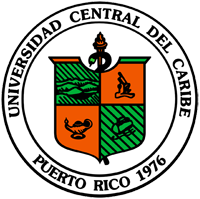New NIH Training Requirements: Other Support and Research Security
Notice NOT-OD-25-133, issued in July, mandates that institutions that receive NIH funding must provide training to faculty and researchers designated as senior or key personnel on their obligation to disclose the receipts of all “other support:.
- Effective October 1, 2025, all institutions must implement such training and maintain written and enforced policy. Senior/key personnel must disclose all research activities and affiliations, both active and pending, regardless of monetary value.
Notice NOT-OD-25-154, issue on September 11, 2025, relates the NIH’s implementation of research security policies and require certifications by both covered institutions and covered individuals that they operate a research security program with required elements and have completed the requisite trainings. Compliance with be effective for applications submitted after January 25, 2026.
- Query whether the “other support” training can become part of the research security training, perhaps via a custom module that would align with NIH requirements.
Executive Order August 7, 2025 – Improving Oversight of Federal Grantmaking
The Trump Administration on Aug. 7, 2025, issued a sweeping executive order titled “Improving Oversight of Federal Grantmaking“ (the Order or EO), which is aimed at overhauling the federal grantmaking process. Framed as a response to concerns about the effectiveness, accountability and alignment of federal grants with national priorities, the EO introduces a series of reforms designed to tighten oversight, streamline processes and ensure that taxpayer dollars are directed toward projects that demonstrably advance American interests.
The Order instructs the director of the Office of Management and Budget (OMB) to revise the Uniform Grant Guidance (2 C.F.R. Part 200) and other relevant guidance to streamline application requirements and require all discretionary grants to permit termination for convenience, among other changes. For grant recipients, these changes represent a significant shift in both the expectations and risks associated with pursuing and managing federal funding. The new requirements touch every stage of the grant life cycle – from application and review to ongoing compliance and termination – making it essential for recipients to understand and adapt to the evolving regulatory environment.
Notably, the Order does not only impact future grants, but potentially existing awards as well. The Order directs agencies to “take steps to revise the terms and conditions of existing discretionary grants to permit immediate termination for convenience, or clarify that such termination is permitted.” Such an amendment would have a significant impact on existing grants recipients.
Implications of “Grantmaking: EO
- Gives political appointees more control over grants and to review NOFOs to ensure alignment with agency priorities.
- States that awards cannot fund or promote racial preferences or discrimination, gender ideology promotion, illegal immigration or other initiatives that “promote anti-American values”.
- Research grant preference will be given to institutions with lower indirect cost rates.
- OMB Director instructed to revise Uniform Guidance to permit termination for convenience and to limit the use of grant funds for costs related to facilities and administration.
- Requires agency heads to engage in a detailed review of grant terms and conditions, and to revise grants to permit termination for convenience and/or clarify that such termination is permitted.
